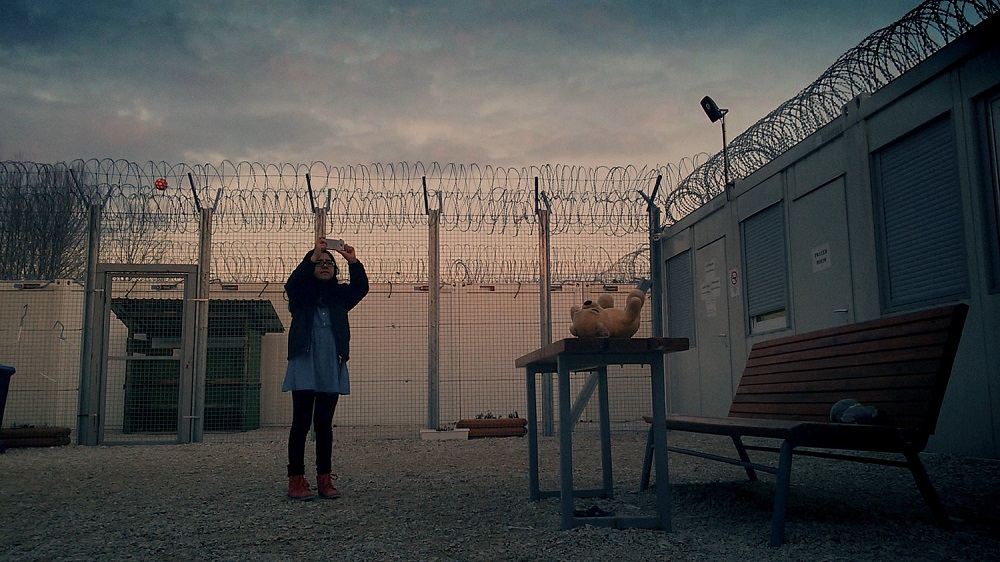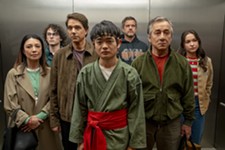
Midnight Traveler
2019, NR, 87 min. Directed by Hassan Fazili.
REVIEWED By Jenny Nulf, Fri., Oct. 11, 2019
Midnight Traveler is a diary-format documentary that treks a targeted family’s escape from the Middle East to Europe. These refugee documentaries are familiar, which isn’t to say they’re not all important stories, but in such a saturated market they tend to relate the same tragic tale over and over again, and often from a remove.
What makes Midnight Traveler distinct from its counterparts is that it follows filmmaker Hassan Fazili’s own family, and the intimacy he’s able to capture over the life spans of three smartphones makes his documentary more tender and honest and immediate. He doesn’t exploit moments of peril, like when his daughter Zahra briefly goes missing at a refugee camp. Instead, he relates his fear in a placid voiceover with ominous shots of the moon, and ends his recollection of the events with long takes of his daughter joyously dancing in a mini-cyclone of delicate bird feathers.
Fazili, who was forced to flee Afghanistan after the Taliban put a bounty on his head, utilizes voiceover throughout his documentary, pairing it with images of his family on the run. In fact, the film begins with a haunting voiceover from his eldest daughter, Nargis, who disagrees with her father’s saying, “Hell is other people.” Rather, she believes, “The road of life winds through hell, and also: Hell is within me.”
Fazili juxtaposes such a bleak sentiment with little moments, stitched together in home-video fashion, that position his daughters as a beacon. Although hope is not something that’s easy to grasp as young children in a situation as dire as theirs, they radiate it, illustrated in Nargis’ smile when she gets new shoes that fit her, or when Zahra rejoices after building a “Christmas man” for the first time.
Still, tragedy is everywhere for the Fazili family. Unable to break free of their homeland, they are ushered from refugee camp to refugee camp, where some are safe but others are in danger from local citizens who lack empathy and knowledge. The girls encounter sickness and violent strangers, among other horrors, and it’s continuously heartbreaking to watch this family’s journey.
“I’m gonna forget. I absolutely won’t want to remember this in the future,” Nargis says at the end of the documentary.
Hopefully her wish will come true. But for the rest of us, her father’s film provides a vital account – one we shouldn’t forget or look away from.
A note to readers: Bold and uncensored, The Austin Chronicle has been Austin’s independent news source for over 40 years, expressing the community’s political and environmental concerns and supporting its active cultural scene. Now more than ever, we need your support to continue supplying Austin with independent, free press. If real news is important to you, please consider making a donation of $5, $10 or whatever you can afford, to help keep our journalism on stands.
Midnight Traveler, Hassan Fazili









